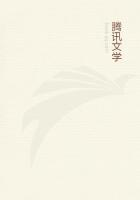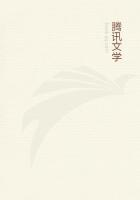The Slav and Germanic custom, securing to every one the enjoyment of land from which to derive his means of subsistence, is the only one conformable to the rational theory of property. The generally accepted theory of property requires total reconstruction, for it rests on premises in direct antagonism with historic facts and with the very conclusions at which it seeks to arrive.
In enquiries as to the origin of property, sufficient attention has not been given to ancient historic facts, which may be called natural as everywhere springing from an instinct of justice, which seems innate in human nature. As Sir Henry Maine remarks, "theories, plausible and comprehensive, but absolutely unverified, such as the Law of Nature or the Social Compact, enjoy a universal preference over sober research into the primitive history of society and law; and they obscure the truth not only by diverting attention from the only quarter in which it can be found, but by that most real and most important influence which, when once entertained and believed in, they are enabled to exercise on the later stages of jurisprudence." (9)Thus, in order to defend the quiritary property bequeathed to us by the Romans, writers have asserted that it has existed at all times and in all places, ubique et semper ; -- whereas a closer knowledge of history shews us that the original and universal form of property was the mode of possession practised by the Slavonic and Germanic tribes, and exercised at Rome itself over the ager publicus .
The jurists, under the influence of the Digest and the Institutes, base the right of property on the occupation of a res nullius ; but we know of no period in which the soil has been a res nullius . Among hunting tribes their hunting-ground, among pastoral tribes their pasture lands, and finally among the earliest agricultural tribes the cultivated land, were always regarded as the joint property of the tribe, and no one ever conceived the idea that an individual could have any exclusive, hereditary right therein. Occupation could only create a right of property over movable objects, which were actually subject to seizure and detention. The formalities of sale among the Romans, shew that it was only applied by a comparatively recent extension to the alienation of an immovable.
In deriving the right of property solely from labour, economists are in direct opposition to the jurists and the legislations of all countries, and even to the existing organization of society, which their theories, if once admitted, would completely overthrow.
Writers, who endeavour to prove the necessity of the right of property, make use of arguments which shew that, in order to be equitable, it must be organized in the same way as among primitive nations, that is, so as to guarantee to every one a natural, inalienable right. The eminent legislator, Portalis, adducing the arguments in support of the title in the Code civil which treats of property, shews it to be necessary and legitimate by the following reasoning: -- Man can only live by his labour; in order to labour he must be able to appropriate a portion of the soil to dispose of it as he pleases; hence the right of property is necessary. Nothing can be more true; but, if property is necessary for a man to labour and live, it follows that every one should have some property. Bastiat adopts the same premises as Portalis, with no clearer perception of their consequences. "In the full force of the word," he says, "man is born a proprietor, because he is born with wants the satisfaction of which is essential to life, and with organs and faculties, the exercise of which is essential to the satisfaction of his wants." From these words of Bastiat it follows that, unless we condemn certain persons to death, we must recognize in all the right to property.
If man is born a proprietor, it is incumbent on the law to put him in a position to exercise the right recognized in him.
"Man," says Bastiat again, "lives and develops by appropriating certain objects. Appropriation is a natural, providential phenomenon, essential to life, and property is only appropriation converted into a right by labour."If appropriation is essential to life, all should be able to appropriate a portion of matter by their labour. This natural right is recognized in the allmend system, and in the ancient Germanic law, but is entirely overlooked in all legislation derived from the Roman law. "Property is not a natural, innate right," says Dalloz, a well-known jurist, "But it springs from an innate right, which right is liberty." If property is indispensable to liberty , does it not follow that all men having the right to be free, all are equally entitled to be proprietors? In fact, without property they would be dependent on those from whom they received their wage. Troplong, the great jurist of the Second Empire, in a pamphlet, La propriétéd'après le Code civil , published in 1848, in refutation of the false doctrines of the Socialists, expresses himself in these terms (p.
12): "If liberty is the basis of property, equality makes it sacred. All men being equal, and therefore equally free, every one ought to recognize in another the sovereign independence of the right." Now either this high-sounding phrase has no meaning at all, or else it signifies that we ought to secure to every one the enjoyment of property, which may guarantee his independence.
Most modern authors declare property to be a natural right. But what is a natural right, unless it be a right so inherent in human nature that no man should be able to be robbed of it, unless he has forfeited it by his conduct?















